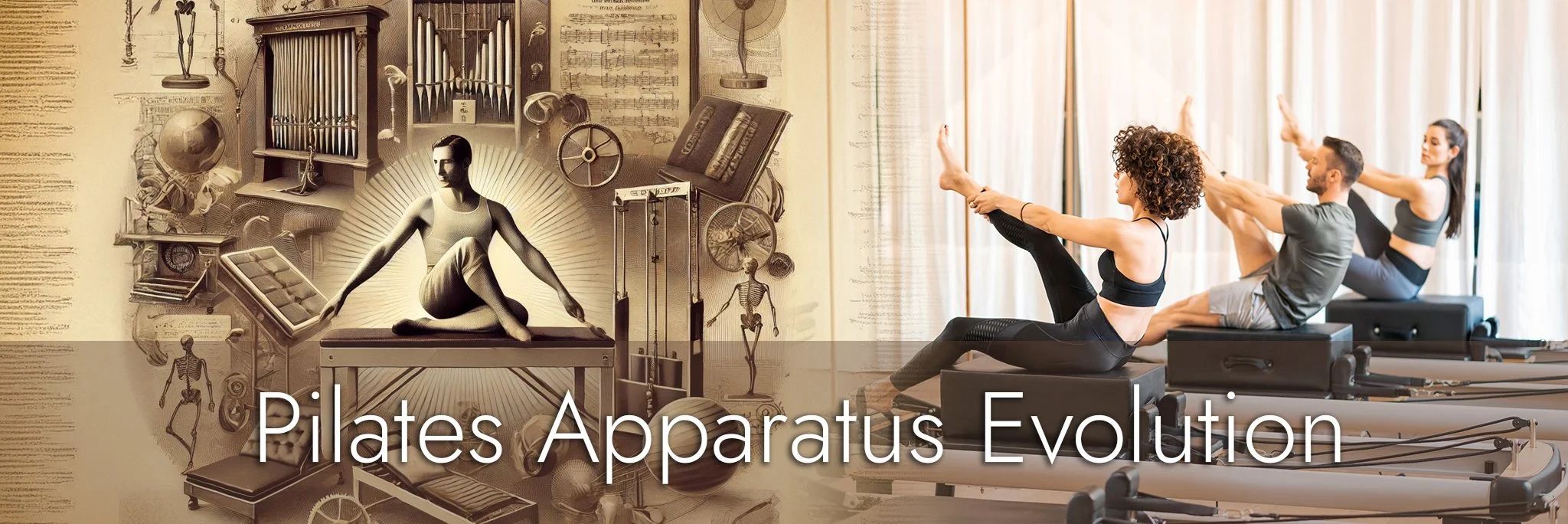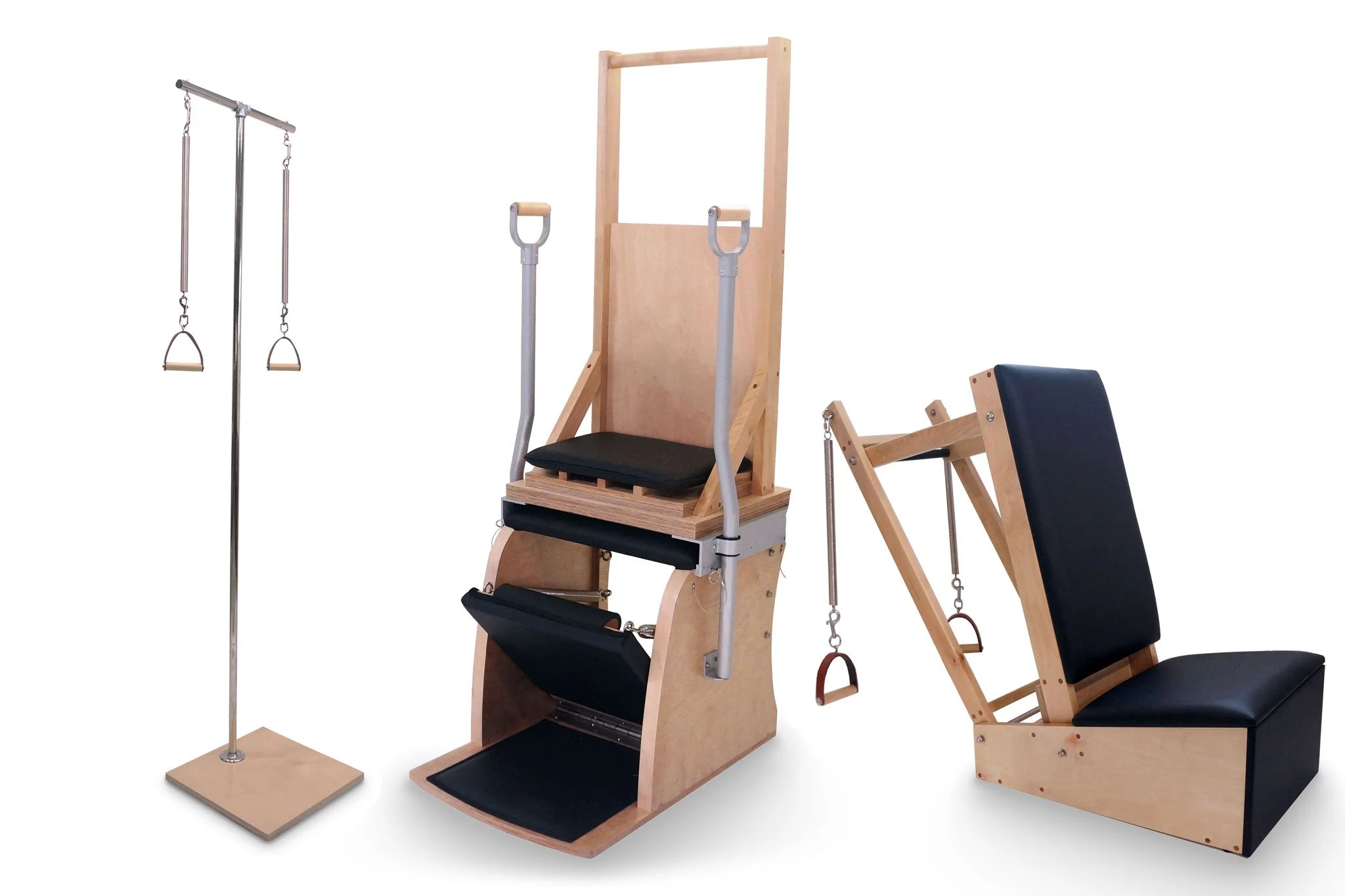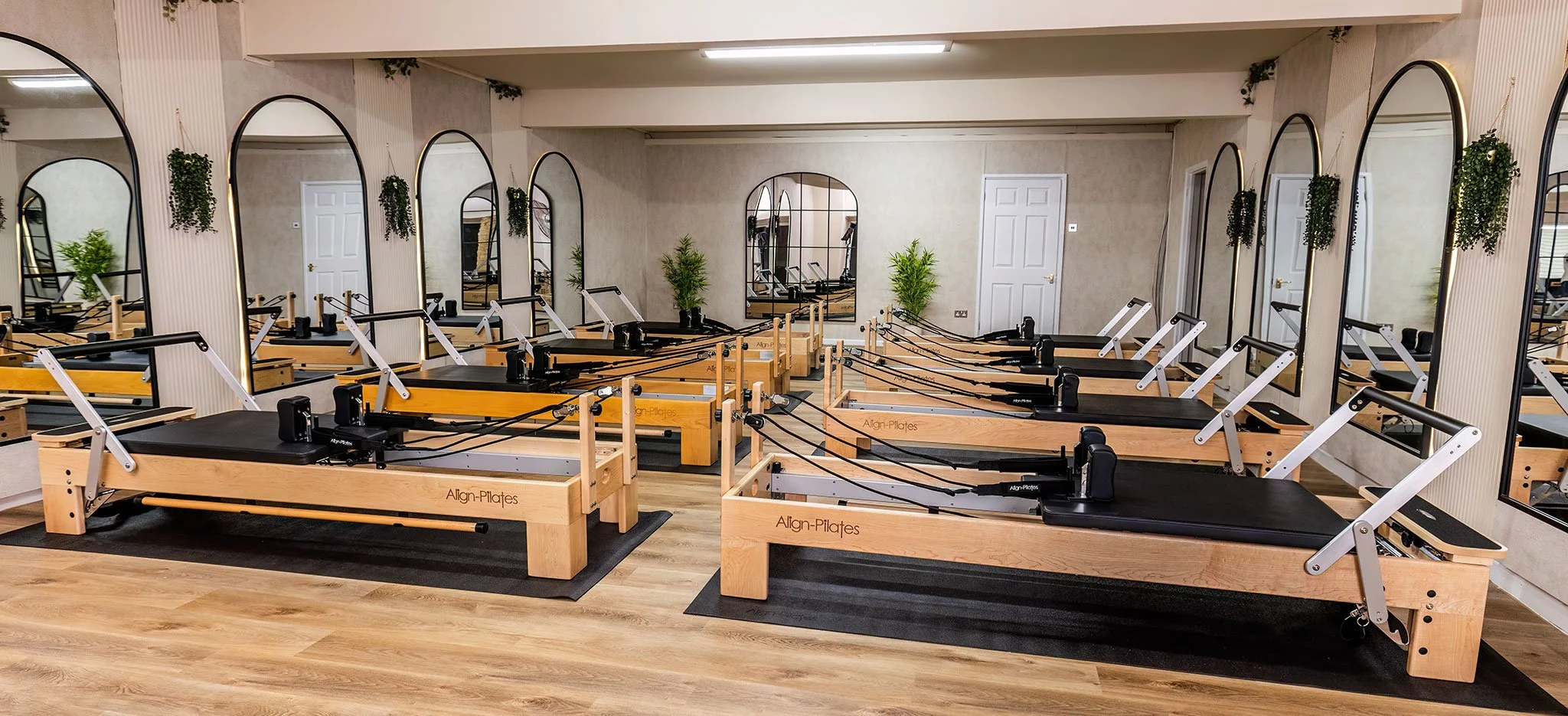A Century of Pilates Apparatus: From Joseph Pilates to Modern Innovations
The evolution of Pilates apparatus over the past century reflects the Pilates Method's adaptability and enduring appeal. From Joseph Pilates' original designs to contemporary innovations, the apparatus has played a pivotal role in the development of the practice.
I am always surprised by how few of my clients are aware of the evolution of Pilates apparatus from inception. In 2024 and 2025, I will focus on writing about Pilates Manufacturers and their offerings and compare and contrast the different options related to different instructor or studio needs.
I will also spend some time looking at key Pilates influencers related to Apparatus and introduce you to an English lady named Portland Green and her Pilates Apparatus brand PPE in the 1980s and 1990s. Her Pilates Reformer design in the 1980s may have shaped the modern Reformer more than the industry is aware.
1920s–1960s: Joseph Pilates and Early Apparatus Development
Joseph Pilates, born in 1883 in Germany, developed his exercise method, which he termed "Contrology," in the early 20th century. After moving to New York in the 1920s, he and his wife Clara established a studio where they introduced various apparatus to enhance physical conditioning. Notable inventions include:
Universal Reformer: Designed to provide resistance training through a system of springs and pulleys.
Cadillac (Trapeze Table): Equipped with bars and springs for a wide range of exercises.
Wunda Chair: A compact apparatus that could also function as a regular chair.
Spine Corrector: A barrel-shaped device to assist in spinal alignment and flexibility.
PediPole :- A T shaped high bar with Springs linked to handles to aid balance, strength, control and coordination
Ladder Barrel: Combining a ladder and a curved barrel, providing support for exercises that enhance flexibility, core strength, and spinal alignment while also serving as an aid for developing proper body mechanics.
Joseph Pilates secured patents for several of his apparatus designs, including the Universal Reformer in 1924 (U.S. Patent No. 1,621,477) and the Wunda Chair in 1930 (U.S. Patent No. 1,867,379). These patents underscored his commitment to innovation in physical fitness equipment.
‘Classic’ Joseph Pilates inspired Apparatus
1960s–1980s: Post-Pilates Era and Apparatus Manufacturing
Following Joseph Pilates' death in 1967, the rights to his name and method became subjects of legal disputes. In the 1980s, the Pilates trademark was sold to various entities, leading to further complexities in the ownership and dissemination of the method.
During this period, several manufacturers began producing Pilates apparatus:
Gratz Industries: Established a relationship with Joseph Pilates in the 1960s, becoming one of the first companies to manufacture Pilates equipment based on his original designs.
Current Concepts: Founded by Ken Endelman in 1976, initially produced custom furniture before transitioning to Pilates equipment manufacturing. They collaborated with Romana Kryzanowska, a direct disciple of Joseph Pilates, to produce apparatus that adhered to traditional specifications.
Portland Green and PPE: In the 1980s, Portland Green, a UK-based designer, developed the PPE range of Pilates equipment. She collaborated with Wee-Tai Hom, who co-owned the Pilates trademark at the time, to introduce her designs to the U.S. market.
1990s: Legal Disputes and Market Expansion
The 1990s were marked by significant legal battles over the Pilates name and method. In 1992, Sean Gallagher acquired the rights to the Pilates trademark and began enforcing it, leading to widespread litigation. Early cases involved Gallagher trading as Pilates Inc. taking actions against individual studio owners calling themselves Pilates teachers or instructors. One notable case was Deborah Lessen in 1996, along with actions related to Pilates Inc. where equipment manufacturers like Portland Green challenged Gallagher in the mid-1990s. Ken Endelman of Current Concepts also contested Gallagher's claims, resulting in a landmark 2000 court ruling that declared "Pilates" a generic term, allowing unrestricted use by practitioners and manufacturers.
During this decade, new manufacturers emerged:
Basil Pilates: established in 1990 by Basil and Sylvia Tsiokos, a break away from Gratz Pilates. The company began manufacturing its equipment in the early 1990s, focusing on precision and durability.
Stott Pilates (now Merrithew): Lindsay and Moira Merrithew founded a studio in the late 1980s in Canada, with Moira using her maiden name, Stott, as her professional name. Lindsay manufactured the apparatus for his wife’s studio. A decade later, they developed a contemporary approach to Pilates, integrating modern exercise science principles. While Moira Stott developed an educational line, Lindsay's experience in early manufacturing led to the production of durable, metal-based apparatus marketed under the Stott Pilates brand, along with accessories and videos for Pilates mat work and contemporary derivatives.
Peak Pilates: Established in 1996, Peak Pilates focused on creating high-quality equipment and comprehensive instructor training programs.
Present: Diversification and Globalisation
The 2000 court ruling spurred growth and diversification in the Pilates apparatus market. Numerous companies entered the industry, offering a variety of equipment to meet the needs of practitioners worldwide:
2000 – 2010
IM=X Pilates: In 2003, IM=X Pilates started to manufacture its own version of the Pilates Reformer, branded the Xerciser, and later added the IM=X Tower.
SET Pilates: In 2004, this Turkish manufacturer started to produce wooden Pilates apparatus.
Bon Pilates: Founded in 2005, Bon Pilates began manufacturing a range of Pilates apparatus in Spain.
Vitality for Life and Byron Bay Pilates: In Australia, Vitality started to manufacture Pilates apparatus, often known as Byron Bay Pilates.
Align-Pilates: Established in the UK in 2010, Align-Pilates became a new Pilates apparatus manufacturer.
2011 – Present
The last 15 years have seen the growth of manufacturing in the Far East, most notably in China. Many of the established players moved some of their manufacturing to China or developed new ranges exclusively manufactured in the far East.
The only notable new entrant to the market outside of China has been BASI Systems:
BASI Systems: Founded in 2015 under licence from Rael Isacowitz, BASI Systems manufactures high-end innovative Pilates equipment in Turkey.
There are, of course, many other companies making Pilates apparatus on a small scale or in local markets. In Europe, we see gym equipment manufacturers like Panatta Sport and TechnoPilates, largely serving their local Italian market.
The proliferation of manufacturers has led to increased competition and innovation, benefiting practitioners with a wider array of apparatus options. However, it has also introduced challenges, such as varying quality standards and the emergence of counterfeit products.
The growth in access to end-users and instructors brought about by social media—particularly Instagram and Facebook groups—has driven a marketing push away from the main established Pilates brands, predominantly from factories and non-manufacturing suppliers in China.
The growth in Pilates apparatus studios has allowed most of the main Pilates brands to expand and flourish—the only real casualty being Vitality for Life and their Byron Bay brand, which went into liquidation in September 2014.
Author: Chris Onslow - Pilates Consultant
Chris Onslow, has run Pilates focussed businesses since 1998. He and his team specialise in supporting Pilates entrepreneurs and business owners. With a rich history of owning and running successful Pilates studios in the UK, and supporting others in Europe and the Middle East, Chris has broad expertise in maximising profitability and optimising operational efficiency. His agency provides top-tier advice on selecting new, pre-owned, and hireable Pilates equipment from renowned brands such as Align-Pilates, Balanced Body or Stott-Pilates/Merrithew. As the founder of Mbodies Training Academy, Chris continues to revolutionise Pilates education, offering premier online and hybrid CPD and qualification courses for Pilates apparatus instruction and special population CPD.




